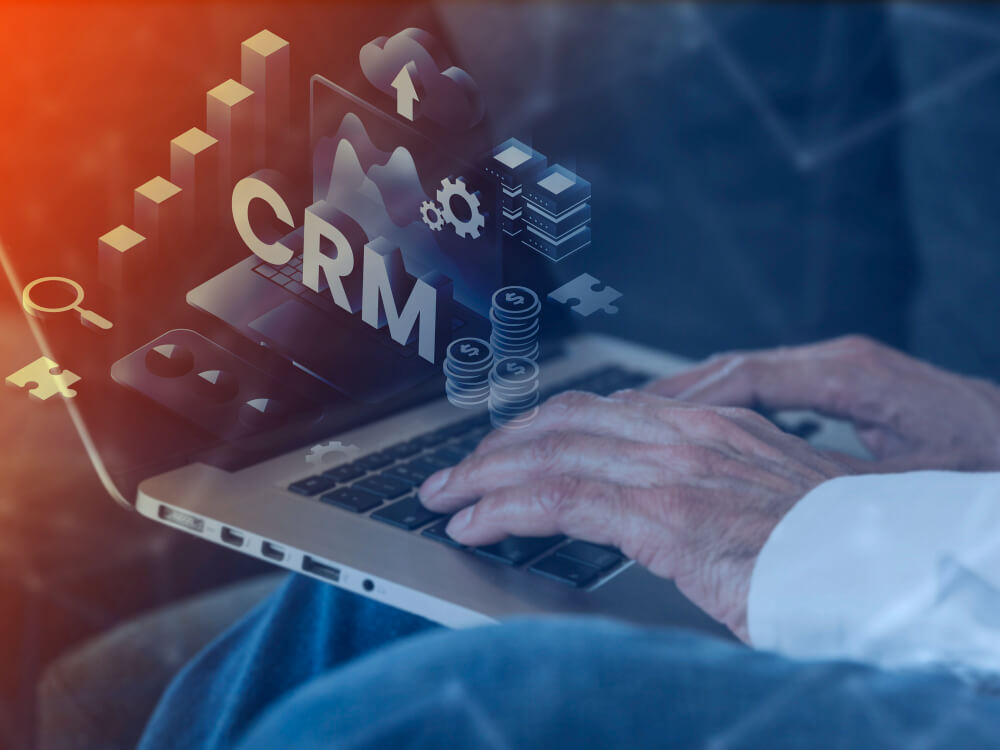So, it’s time to automate the processes for your business! After all, CRM is the fastest-growing software on the market, and even 64% of companies are planning to implement ERP in the next three years. But where do you start? And which management system is right for you? Let’s look at ERP vs CRM.
What is ERP?
ERP stands for Enterprise Resource Planning. The software that is used to manage everyday business functions, such as finances and supply chain operations. Its main purpose is to keep all of your background tasks running smoothly, from factories to project management.
What is CRM?
CRM, on the other hand, stands for Customer Relationship Management. This software manages customer interaction, including customer service and marketing. The main goal is to increase profits for your business, which is naturally much easier with positive customer feedback.
What are the Benefits of ERP?
An ERP system has one shared database for all financial and operational data. This makes it much easier to keep track of the ins and outs of your business. ERPs are also extremely efficient. While closing the books may take a large team and several weeks, with an ERP, it may only take a few days. And as the system is automated, your team can be dispersed into jobs that keep your business moving forward. Overall, an ERP will help your business save time and money.
What are the Benefits of CRM?

With a CRM, you can track all customer data. This makes it easier to determine what customers want, how they’re responding to products, and even how sales are performing. CRM also allows you to see customer information in one spot, from their Tweets to the company to their direct phone calls. This makes it easier to resolve any problems and makes the customer feel valued. Having a CRM is crucial to grow your business and maintain those customer relationships.
How Does ERP Software Work?
As we have said, ERP uses one database to streamline company needs. Therefore, every member of the company can view and use that automated data. HR, for instance, could find data for hiring new employees with an ERP, or bookkeepers could see a list of what has been purchased. With an ERP, that data is both collected and shared within the business.
How Does CRM Software Work?
Since CRM software tracks customer data, it can work in a variety of ways to improve customer relations. For instance, some CRMs can automatically send marketing emails, or remind you to make a phone call to a client. So not only will you have access to all information about a customer, you will also have tools to maintain that positive and growing relationship.
Who Should Use ERP?
ERP is most useful for large businesses and enterprises. As your company expands, it becomes nearly impossible to keep track of every order and expense. With an ERP, though, all of that information is automatically processed and completed. If you are in manufacturing, an ERP is absolutely crucial. Imagine knowing when items are out of stock, or doing inventory management, without a physical crew of people! ERP is essential to take your manufacturing business to the next level.
Who Should Use CRM?
Even if your company is small or a startup, you can utilize a CRM as easily as an established one. Cloud-based CRM systems also mean that any member of your team has access to the data, so you can work and improve the company from any area. And if you need a data center for your cloud-based CRM system, Coloco is a great place to start. After all, if you want your company to expand from a startup to an enterprise, you will need to network and have solid relationships with customers, and that can be maintained with a CRM.
Should You Use Both?
Short answer: Yes! Both CRMs and ERPs are useful tools that will make your manufacturing business the best it can be. But did you know that it is possible to integrate CRM and ERP systems? More often than not, CRM and ERP systems need to share data, and this is easier with an integrated program. Perhaps when selling to a customer, you will need information on what is in stock, and that means having access to CRM and ERP. However, this process can be complex, and it may be just as worthwhile to have two separate programs. It is up to you to decide whether CRM and ERP integration is right for your business.
Should You Utilize a Cloud-Based CRM or ERP?

Briefly, we mentioned the possibility of a cloud-based CRM system. While it is not necessary to switch to the cloud if your CRM and ERP softwares are working efficiently, there are many benefits to doing so. Cloud-based ERP and CRM are typically SaaS (software as a service) so they are leased on a colocation or cloud network. As a matter of fact, 63% of businesses are now using cloud-based ERP software instead of on premise ERP. As for CRM, a cloud-based system is generally more cost-effective than a physical one, especially for new businesses. Much like with integration, it is up to you to decide if the cloud is the best choice.
Conclusion
ERP, or Enterprise Resource Planning, is a software that allows large businesses to manage all of the background tasks that keep the company going. CRM, or Customer Relationship Management, is another software for businesses of all sizes to manage customer data. As your business grows, it is necessary to utilize both softwares, whether they become integrated as one or not.
Manufacturing utilizes CRM and ERP most often, so if you’ve made it this far, there’s a good chance you’re in that industry. Looking to modernize? Start with Coloco to learn more information about the cloud, software integration, and SaaS, and how they can work with your company.

